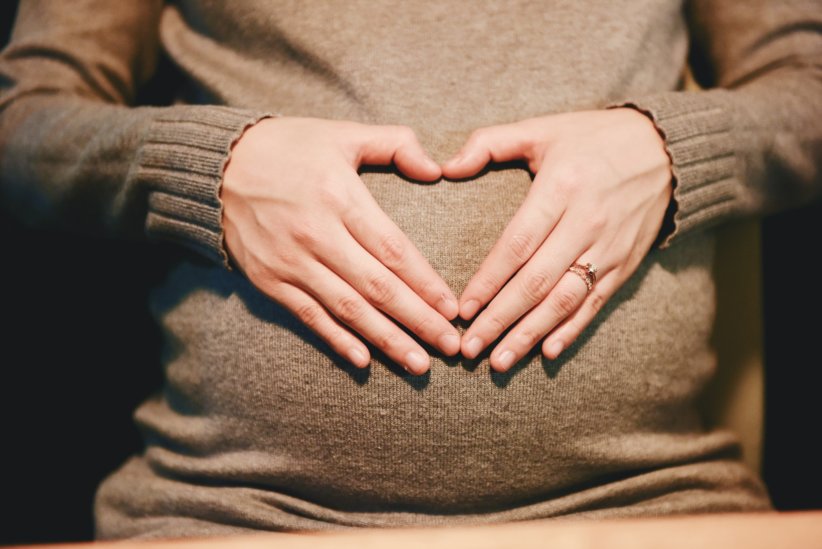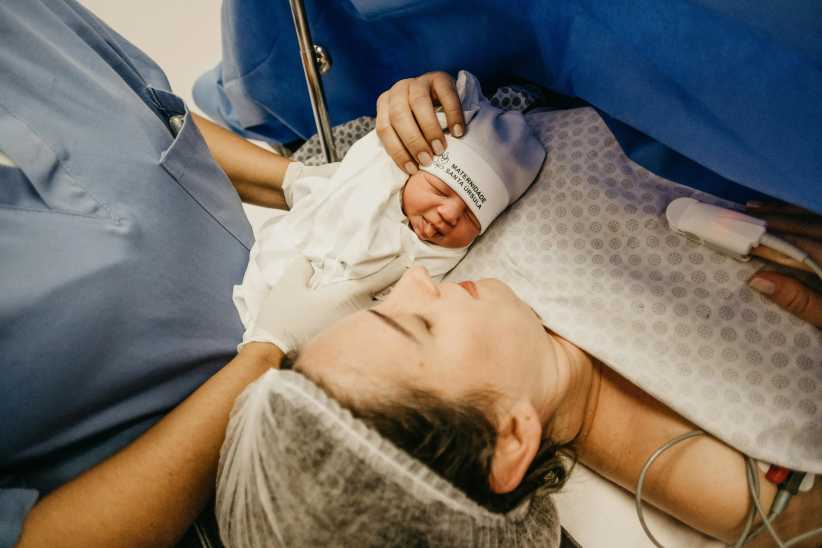
There are still many unknowns regarding the intersection of pregnancy and the coronavirus. Because the virus is relatively recent, not many infants have been born to infected mothers. So it’s hard for scientists to offer certainties about the way the virus might affect pregnant women and their babies. However, the CDC has put out some guidance for pregnant women during the coronavirus outbreak.
Looking for extra advice for navigating the coronavirus outbreak? Check out our recipe for DIY hand sanitizer, our travel tips, and more!
Here’s What You Need to Know About Pregnancy and Coronavirus:
Pregnant women may be at an increased risk
While there are no studies on the level of a pregnant woman’s susceptibility to COVID-19, pregnant women are often more susceptible to similar respiratory infections. Pregnant women are naturally a higher risk group than the general population. They were more at risk for severe illness from related infections, such as the SARS and MERS outbreaks. Similarly, they are vulnerable to complications from the flu. So, while, no one can say for sure, there are reasons to believe that pregnant women are a vulnerable group right now. Justin Brandt, an assistant professor of obstetrics and gynecology at Rutgers Robert Wood Johnson Medical School says, “We have seen reports in the US of some pregnant women having severe illnesses. However, at this time, it remains unclear whether pregnant women with COVID-19 fare worse than non-pregnant patients or have similar outcomes.”
Pregnant women with the virus have not transmitted it to the fetus
In a limited number of cases observed where infants were born to infected women, the child has tested negative for the virus. (However, infants are susceptible to contracting coronavirus from their mothers after birth). Nevertheless, coronavirus may cause other complications during pregnancy. Justin Brandt says these might include “birth defects, early neonatal disease and other complications.” During SARS and MERS, cases of miscarriage and stillbirth were reported in infected women. In some cases of pregnant women with COVID-19, there has been premature birth (birth before 37 weeks).
There is no evidence that Coronavirus is transmitted through breastmilk
So far, scientists have not detected the virus in breastmilk. If a new mother is infected with COVID-19, she could potentially pump her milk and then allow someone else to feed the baby. In fact, there is a high likelihood that mothers infected with COVID-19 will be temporarily isolated from their infants after delivery, according to Justin Brandt. Nevertheless, the baby can continue to receive the mother’s breast milk and will be reunited with the mother at the doctor’s discretion.
According to the CDC, “breast milk is the best source of nutrition for most infants,” providing babies with protection against many illnesses. Because of that, the decision not to breastfeed shouldn’t be taken lightly. The CDC even recommends that mothers with the regular flu continue nursing their babies, while taking precautions not to infect the baby with the flu. Still, the decision about whether a COVID-19 infected mother should breastfeed should be taken on a case by case basis after consultation with a healthcare professional.
Pregnant women should take every precaution
There is no question that pregnant women should take every possible precaution to protect themselves during the coronavirus outbreak. Yale Health recommends that pregnant women stay six feet away from anyone outside their immediate family as well as any family members that are sick. They should thoroughly wash their hands with soap and water. If they’re unable to do so, they should use hand sanitizer that is at least 60% alcohol. They should continue cleaning commonly touched surfaces and objects. If they do need to leave the house, they should avoid public transport. Finally, they should opt for meals prepared at home rather than those delivered from restaurants.
Doctors are also modifying prenatal visit schedules to limit the amount that pregnant women need to leave the house. Justin Brandt says: “We are also using telemedicine as much as possible. We are doing everything we can to provide optimal prenatal care while minimizing the need for patients to leave their homes.”
The story of pregnancy and coronavirus is unfortunately still one of uncertainty. While scientists can offer vague guidance, it’s hard for them to say for sure one way or another how the disease affects pregnancy. The good news is that, as Justin Brandt says, “Most people who acquire COVID-19 will recover fully with minimal risk,” and this includes pregnant women. However, it doesn’t hurt to be as cautious as possible. The priority for pregnant women right now should be staying home and staying safe.
Click here to read the full list of the CDC’s pregnancy and Coronavirus FAQs!
















